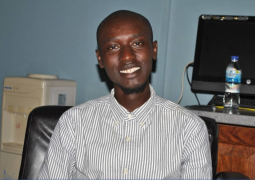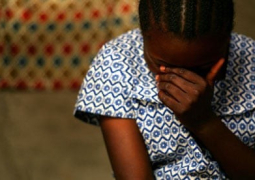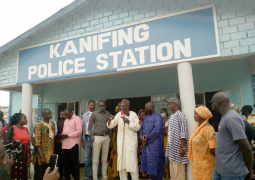The event funded by World Health Organisation, is part of a broader initiative aimed at creating smoke-free public environment not only to protect bystanders, but in de-normalising the 2016 Control Act placed on public-smoking across the country.
Further, this document, according to officials, is a critical resource and tool for accelerating efforts geared towards promoting Smoke-free public environment as in line with the 2016 Tobacco Control Act.
Addressing the gathering, Dr. Selassi D’almeida, acting WHO Country rep, expressed delight that WHO has provided the necessary support and guidance to the development of this document.
“But the development of such a document cannot be realized if the country has not shown any interest or commitment. On behalf of the WHO, I will therefore express our gratitude to the Ministry of Health and by extension the leadership of the country, for the strong commitment to tobacco control.”
He revealed that, that is what has made the Gambia one of Africa’s strongest tobacco control champions, particularly in area of smoke free public environment.
“We know that The Gambia’s tobacco control Act 2016 is very strong on this. Thus, workshop is very timely. We now know that globally every year, about 1.3 million non-smokers die from exposure to second hand smoke.”
WHO country rep made reference to a quote by the WHO Director, which states; “Smoke-free public environment not only protect bystanders but can also help de-normalize the act of smoking across society. In 2008, only 5% of the world’s population was covered by comprehensive free laws, but today over one quarter of the world’s population is covered. Countries that have not yet done so should ban smoking in all indoor public spaces, workplaces and public transport in line with Article 8 of the WHO FCTC, backed by enforcement mechanism.”
He noted the challenges encountered in the fight against tobacco. He also observed that their progress so far is being undermined by the tobacco industry’s aggressive promotion of e-cigarette as a safer alternative to cigarette.
“Young people including those who never previously smoked, are a particular target. In fact, e-cigarettes are harmful to both the people using them and those around them, especially when used indoor.”
The Gambia, he said, is not found wanting on the implementation of the smoke free public places as the Tobacco Control Act is very strong on this. Much effort has also gone into implementing the Act.
“But, as the WHO Director General put, the game is not over yet as the tobacco industry continues to undermine our efforts and gains in different ways.
We do hope that this training we are about to start will energize and equip us to do more to implement our widely acknowledged Tobacco Control Act 2016.”
WHO Country rep expressed his organisation’s resolve to support The Gambia achieve its aspiration for tobacco control as articulated in the Act.
Momodou Camara, director of Western One Health Region, on behalf of the Director of Health Services, expressed gratitude to WHO for the consistent and invaluable support rendered to the health sector in fighting the tobacco epidemic.
“Indeed, we are grateful to the WHO for being always on our side, providing the necessary strategic guidance and direction we need to reduce the burden of tobacco use in our country. This support is numerous and spans across different areas including but not limited to the development and implementation of policy and regulatory frameworks and guidelines for tobacco control, capacity building for tobacco taxation and strengthening governance and enforcement of the tobacco Act 2016 to name but a few.”
To that end, he reiterated that those efforts are not only recognised but something bearing fruit indeed.
“Our records show that a reduction in the prevalence of cigarette smoking among the adolescent population aged 13-15 years from 10.8% in 2008 to 6.5% in 2017. Thanks to the huge technical and financial support received from WHO. WHO’s guidance to tobacco tax reforms dating back to 2013, also remains a landmark in The Gambia and the WHO African Region.”
Camara disclosed that the initial phase of the tobacco tax reform, implemented under the guidance of the WHO, saw substantial increase in revenue generated from tobacco and reduction in the volume of tobacco import.
“However, a lot has been achieved but a lot more needs to be done to stall the tobacco epidemic. Tobacco is still doing its business, killing people, draining our limited resources and polluting our environment. Today’s meeting is another milestone to consolidate gains already made and strengthen our resolve in tackling the realities I have just described.”
He affirmed that they are launching and at the same time training enforcers on the implementation of the enforcement guide.
“We all know that Enforcement of the Act remains a big challenge for all of us. But there is light at the end of the tunnel. I am confident that this launching and training coupled with the existing high political commitment and multi-sectoral action in support of tobacco control will enable us overcome these challenges.”
Dr. William Mina, WHO Africa Region Office, reminded the gathering about the devastating consequence of tobacco use and the threat it poses to even non-smokers.
He made reference to the seventeen SDGs, almost all of which are tackling health issues, reminding that tobacco consumption and production, is not only a health issue but a development one.
Thus, he said it touches on all SDGs and this is the reason why WHO Africa regional office, is to support governments, who are their member states.
With a membership of 47 countries, who are members of the WHO Africa region, he said they support members to adopt laws and regulations for tobacco control as well as support government to implement progressive programmes that address the burden of tobacco use targeting young people.
Besides, the launch was preceded by a three-day capacity building on tobacco control enforcement and compliance targeting law enforcers and public health officials.
Read Other Articles In Headlines
Gambia receives additional $3.5M grant from African Development Fund
Aug 1, 2022, 11:51 AM

Online investment allegedly scams Gambians, disappears with millions
Aug 24, 2023, 12:40 PM



